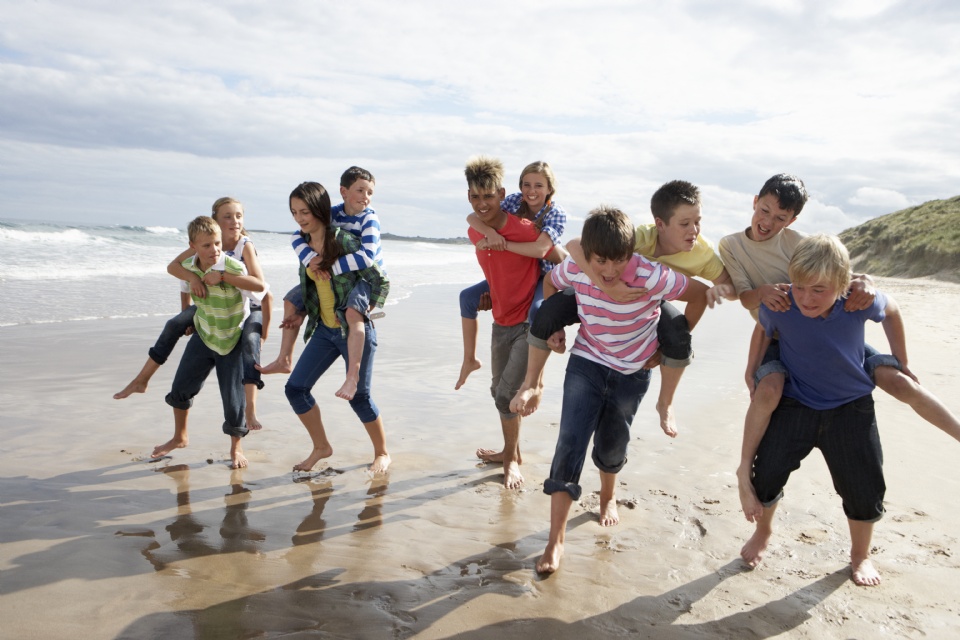Many families keep their children
active and entertained during the summer months by enrolling them in camp for
the season. Camp provides a healthy way to combat restlessness and unstructured
days while allowing children to learn positive life skills. However, when faced
with the choice of day camp or overnight camp, parents may wonder what the
right decision is.
The Benefits of Overnight Camp
Summer camp offers a host of
benefits for children. Camps are environments rich in mental stimulation and
physical activity, where children have the opportunity to learn new things and
explore while developing friendships.
The
activities in overnight camps are similar to day camps, with the primary
difference being an increase in independence since children remain overnight
with no parental supervision. It’s a chance for them to experience freedom in a
new way and learn about themselves. Another vital lesson overnight camp brings
is decision-making. Without their parents around, children begin to understand
the thought process that goes into making a decision. They learn to be
accountable for their choices and feel empowered as well as more confident.
How Will You Know When Your Child is
Ready?
Parents who decide overnight camp is
a good option may wonder when the right time is. The average age is between seven and
nine years old, but this is not a hard and fast rule. It boils down to the
temperament of each individual child.
Roxane
Picard is a mother of three children who recently sent her seven-year-old to
overnight camp for the first time. One of the factors that prompted her
decision was her own experience. “They were the best days of each summer,” she
recalls. “With so many activities like horseback riding, canoeing, rock
climbing – [things] I never got to do at home.”
Ultimately
though, Picard says it was her daughter’s choice. After discussing it, her
daughter felt excited at the prospect and repeatedly asked to go. Since Picard
knew her daughter was independent and could do things like wash herself and get
dressed on her own, she decided to send her. “We trusted her to take care of
herself,” she says. “That was a big boost in our relationship with her.”
A Few Tips to Consider
Parents can base their decision on
two factors; whether or not they feel the child is independent enough, and if the child is
interested. That is pivotal and will affect the overall experience. It is recommended to have a conversation
with your child about what life at camp would be like and what would be expected from them.
If the child is independent and has slept
at a relative or a friend’s house before with no separation issues, that’s a
good start. It also helps if the child has already experienced day camp before.
It would also be wise to start with an overnight camp that lasts a weekend or
several days before jumping into one that lasts several weeks. And if you’re
worried your child will get homesick while away, remember, camp is loaded with plenty
of interesting activities to keep your child entertained.

 In The Latest Issue:Latest Issue:
In The Latest Issue:Latest Issue:
- A Bittersweet Farewell
- The new Laval Aquatic Co...
- The End of an Era:
Articles
Calendar
Virtual- ANNUAL TEACHER APPRECIATION CONTEST
- APPUI LAVAL
- ARTS & CULTURE
- CAMPS
- CAR GUIDE
- CCIL
- CENTENNIAL ACADEMY
- CHARITY FUNDRAISING
- CITYTV
- COSMODÔME
- COMMUNITY CONNECTIONS
- COVER STORY
- DINA DIMITRATOS
- ÉCOLE SUPÉRIEURE DE BALLET DU QUÉBEC
- EDITORIALS
- ÉDUCALOI
- EDUCATION
- EMPLOYMENT & ENTREPRENEURSHIP
- FÊTE DE LA FAMILLE
- FÊTE DU QUARTIER SAINT-BRUNO
- FAMILIES
- FESTIVAL LAVAL LAUGHS
- FÊTE DE QUARTIER VAL-DES-BRISES
- FINANCES
- GLI CUMBARE
- GROUPE RENO-EXPERT
- HEALTH & WELL-BEING
- 30 MINUTE HIT
- ANXIETY
- CHILDREN`S HEALTH & WELLNESS
- CLOSE AID
- DENTAL WELLNESS
- EXTREME EVOLUTION SPORTS CENTRE
- FONDATION CITÉ DE LA SANTÉ
- GENERAL
- HEARING HEALTH
- MESSAGES FROM THE HEALTH AGENCY OF CANADA
- MENTAL HEALTH
- SEXUALITY
- SOCIAL INTEGRATION
- SPECIAL NEEDS
- TEENS
- THE NUTRITION CORNER
- THE NUTRITION CORNER - RECIPES
- VACATION DESTINATION
- WOMEN'S FITNESS
- WOMEN'S HEALTH
- HILTON MONTREAL/LAVAL
- HOME & GARDEN
- INTERNATIONAL WOMEN'S DAY
- JAGUAR LAVAL
- LAVAL À VÉLO
- LAVAL FAMILIES TV SHOW
- LAVAL FAMILIES MAGAZINE CARES
- LAVAL URBAN IN NATURE
- LE PARCOURS DES HÉROS
- LES PETITS GOURMETS DANS MA COUR
- LEON'S FURNITURE
- LEONARDO DA VINCI CENTRE
- LFM PREMIERES
- LIFE BALANCE
- M.P. PROFILE
- MISS EDGAR'S AND MISS CRAMP'S SCHOOL
- MISSING CHILDREN'S NETWORK
- NETFOLIE
- NORTH STAR ACADEMY LAVAL
- OUTFRONT MEDIA
- PASSION SOCCER
- PARC DE LA RIVIÈRE-DES-MILLE-ÎLES
- PÂTISSERIE ST-MARTIN
- PIZZERIA LÌOLÀ
- PLACE BELL
- PORTRAITS OF YOUR MNA'S
- ROCKET DE LAVAL
- SACRED HEART SCHOOL
- SCOTIA BANK
- SHERATON LAVAL HOTEL
- SOCIÉTÉ ALZHEIMER LAVAL
- STATION 55
- STL
- SUBARU DE LAVAL
- TECHNOLOGY
- TEDXLAVAL
- TODAY`S LAURENTIANS AND LANAUDIÈRE
- TODAY`S LAVAL
- WARNER MUSIC
- THIS ISSUE
- MOST RECENT
Magazine
Overnight Camp: Is Your Child Ready?
Articles ~e 105,7 Rythme FM 4 chemins Annual Teacher Appreciation Contest Appui Laval Arts & Culture Ballet Eddy Toussaint Camps THIS ISSUE MORE...
CONTESTS Enter our contests
CONTESTS Enter our contests
CALENDAR
Events & Activities
COMMUNITY Posts Events
PUBLICATIONS Our Magazine Family Resource Directory
LFM BUSINESS NETWORK Learn more
COUPONS Click to save!
COMMUNITY Posts Events
PUBLICATIONS Our Magazine Family Resource Directory
LFM BUSINESS NETWORK Learn more
COUPONS Click to save!
SUBSCRIPTIONS
Subscribe to the magazine
Un-Subscribe
E-NEWSLETTER Subscribe to our E-newsletter Un-Subscribe
WRITE FOR US Guidelines & Submissions
POLLS Vote today!
E-NEWSLETTER Subscribe to our E-newsletter Un-Subscribe
WRITE FOR US Guidelines & Submissions
POLLS Vote today!
ADVERTISERS
How to & Media guide
Pay your LFM invoice
SUGGESTIONS Reader's Survey Suggest a Listing
LFM About Us Our Mission Giving Back Contact Us
SUGGESTIONS Reader's Survey Suggest a Listing
LFM About Us Our Mission Giving Back Contact Us
 PICK-UP LOCATIONS
Get a copy of LFM!
PICK-UP LOCATIONS
Get a copy of LFM!
TERMS & CONDITIONS Privacy | Terms
ISSN (ONLINE) 2291-1677
ISSN (PRINT) 2291-1677
Website by ZENxDESIGN



 BY:
BY: 
Tweet
Share